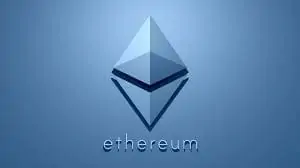
Average Ethereum gas prices nearly quadrupled in the last two days, largely owing to stablecoin transactions.
According to blockchain explorer Etherscan, Ethereum gas prices more than doubled from Tuesday to Wednesday and are on track to double again Thursday.
Transfers using the addresses of centralized stablecoins, Tether and USDC, account for a large portion of the rise. Tether stablecoin transactions have racked up the most fees in the last 24 hours, surpassing trades on decentralized exchanges Uniswap and 1inch; USDC stablecoin ranks fourth.
This is significant since, for the majority of the last year, NFT marketplace OpenSea has continuously rated as one of the top two Ethereum “gas guzzlers.”
The processing power required to complete a transaction on the Ethereum network is measured in “gwei.” (The transaction is paid for in ETH by the user who initiates it.) To put it simply, the greater the price of gas, the more expensive the transaction. Things become more expensive when the network becomes overloaded.
While the falling value of ETH—now below $2,000(R32 438) for the first time since July 2021—usually lowers transaction fees in dollar terms, the amount of activity on the network is actually driving up the price of gas in USD. On Thursday, the anticipated cost of a Tether (USDT) transfer exceeded $20(R324).
And a lot of USDT is currently being transferred.
Yesterday, little about 22 billion USDT were transferred on Ethereum, the highest amount since May 2021. But it isn’t always because people want Tether. According to CoinMarketCap, USDT’s market capitalization has dropped by 2% in the previous 24 hours, implying that circulation has decreased.
USDT may be given the same broad brush treatment as Terra’s decentralized UST stablecoin (without the “D”). This week, UST lost a significant amount of ground, falling as low as $0.29(R4.70). Because of the depegging, the price of Terra’s native token, LUNA, fell from a monthly high of $99 to $0.01(R1 606- R0.16).
As stablecoins face a serious crisis, Tether briefly lost its dollar peg today before restoring its target price. Some, including Tether CTO Paolo Ardoino, believe that traders are selling USDT because they think it’s UST.
However, unlike UST, which was supported by undercollateralized holdings of LUNA, UST, Bitcoin, and Avalanche, USDT maintains reserves in cash, bonds, and other assets—though many believe its treasury is overly reliant on commercial debt, which can become illiquid in a financial crisis.
Today, however, was an opportunity for the firm to brag about the stability of their stablecoin. It claimed in a blog post that it had handled 300 million USDT redemptions and would process another 2 billion before the end of the day.
Meanwhile, USDC, which has made public its intention to build a reserve consisting solely of cash and short-term Treasuries, has profited from the stablecoin panic. Its market capitalization has increased by 0.75% as traders abandon open holdings on Ethereum exchanges and trade into USDC.
This website uses cookies.